Embracing Freedom: Using Acceptance and Commitment Therapy (ACT) to Treat OCD
Obsessive-Compulsive Disorder (OCD) can be an overwhelming and debilitating condition, trapping individuals in a cycle of intrusive thoughts and compulsive behaviors. Traditional treatments often focus on symptom management, but a groundbreaking approach known as Acceptance and Commitment Therapy (ACT) offers a fresh perspective on managing OCD by emphasizing acceptance, mindfulness, and value-driven action. In this blog, we'll explore how ACT provides a path to liberation from the grips of OCD, empowering individuals to live a fulfilling life aligned with their deepest values.
Understanding OCD and Its Challenges
OCD is characterized by persistent, unwanted thoughts (obsessions) and repetitive behaviors or mental acts (compulsions) aimed at reducing distress or preventing a feared outcome. While these rituals may offer temporary relief, they ultimately perpetuate the cycle of anxiety and reinforce the belief that one must control or eliminate certain thoughts or sensations to feel safe.
Traditional cognitive-behavioral therapies often focus on challenging and modifying these thoughts, but for many individuals, this approach can feel like a constant battle against the mind. This is where ACT offers a paradigm shift, inviting individuals to make room for their thoughts and feelings rather than trying to suppress or eliminate them.
The Core Principles of ACT
At the heart of ACT lies six core principles:
1. Cognitive Defusion: Instead of trying to change the content of our thoughts, ACT teaches us to change our relationship with them. Through techniques like mindfulness and metaphorical exercises, individuals learn to observe their thoughts without getting entangled in them.
2. Acceptance: Rather than struggling against unwanted thoughts and emotions, ACT encourages acceptance of these internal experiences as a natural part of being human. By embracing all aspects of our inner world, we can reduce the power these experiences hold over us. A part of acceptance also includes accepting that healing from OCD does not mean obsessions go away, but that you are equipped with the tools to flow with them.
3. Being Present: Mindfulness practices help individuals cultivate present-moment awareness, allowing them to disengage from unhelpful thoughts and connect with their immediate experiences.
4. Self-as-Context: This principle emphasizes the importance of seeing oneself as the context within which thoughts and emotions arise, rather than being defined by them. By recognizing our inherent worth and resilience, we can better navigate life's challenges.
5. Values Clarification: ACT encourages individuals to identify their core values – the qualities and experiences they deem most important in life. By aligning our actions with these values, we can create a sense of meaning and purpose even in the face of adversity.
6. Committed Action: Finally, ACT emphasizes the importance of taking action guided by our values, even in the presence of discomfort or uncertainty. By focusing on meaningful goals and pursuits, individuals can break free from the cycle of avoidance and move towards a life of vitality and fulfillment.
Applying ACT to OCD Treatment
In the context of OCD, ACT offers a holistic approach that goes beyond symptom reduction to address the underlying processes that maintain the disorder. Rather than trying to eliminate obsessions or compulsions, the goal of ACT is to help individuals develop psychological flexibility – the ability to adaptively respond to internal experiences while pursuing a rich and meaningful life.
Here's how ACT principles can be applied to OCD treatment:
1. Defusing Obsessive Thoughts: Instead of engaging in compulsive rituals to neutralize intrusive thoughts, individuals learn to defuse from them using mindfulness techniques. By observing thoughts as passing events in the mind rather than objective truths, individuals can reduce their impact and regain a sense of perspective.
2. Accepting Uncertainty: OCD often revolves around a fear of uncertainty and a desire for control. In ACT, individuals are encouraged to embrace uncertainty as an inevitable part of life. Rather than seeking reassurance or certainty, they learn to tolerate ambiguity and take action in line with their values despite the presence of doubt.
3. Living in the Present: Mindfulness practices help individuals ground themselves in the present moment, reducing rumination about the past or worry about the future. By cultivating present-moment awareness, individuals can break free from the grip of OCD and engage more fully in their lives.
4. Clarifying Values: Identifying core values provides individuals with a compass for navigating life's challenges. By clarifying what truly matters to them, individuals can make decisions and take action that is consistent with their values, even in the presence of OCD symptoms.
5. Taking Committed Action: ACT encourages individuals to take action towards their values, even when it's difficult or uncomfortable. Rather than waiting for symptoms to disappear before living their lives, individuals learn to engage in meaningful activities and pursue their goals despite the presence of OCD.
Conclusion
Acceptance and Commitment Therapy offers a powerful alternative for individuals struggling with OCD, providing a framework for embracing uncertainty, cultivating mindfulness, and living a values-driven life. By shifting the focus from symptom reduction to psychological flexibility, ACT empowers individuals to break free from the confines of OCD and live a life of meaning and purpose. As we continue to explore innovative approaches to mental health treatment, ACT stands out as a beacon of hope for those seeking liberation from the chains of obsessive-compulsive disorder.
If you are looking for providers who specialize in utilizing this approach with OCD, get matched with one of our OCD counseling specialists today. If you would prefer, you can also schedule a free treatment consultation directly with one of them here (make sure to select one of our OCD specialists from the list).
